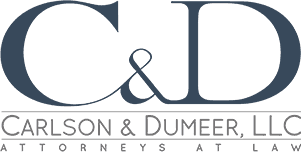Criminal charges in Connecticut will generally be classified as either a misdemeanor or a felony offense. A felony is a more serious offense that will result in harsher penalties than a misdemeanor. The main difference in penalties is that a misdemeanor may result in less than one year in jail, while felony offenses may result in at least one year in prison. While it is known that felonies are more serious than misdemeanors, there are several 'classes' of misdemeanors and felonies that categorize criminal charges even further.
Charged with a misdemeanor or felony? Call (860) 455-4147 now!
Felony Sentencing in Connecticut
Felonies in Connecticut can either be termed capital felonies or fall under the category of Class A, B, C or D felonies. The potential consequences for a crime will depend on the type of felony that is charged, here is the breakdown of felony penalties in Connecticut found under Conn. Gen. Stat. §§ 53a-35a, 53a-41:
-
Capital Felonies (ex. Murder under certain circumstances)
- Death penalty or life in prison
-
Class A Felonies (ex. Sexual Assault of a child)
- Between 25 years and life in prison
- A fine of up to $20,000
-
Class B Felonies (ex. Theft of property valued over $20,000)
- Between one and 40 years in prison
- A fine of up to $15,000
-
Class C Felonies (ex. Larceny in the Second Degree)
- Between one and 10 years in prison
- A fine of up to $10,000
-
Class D Felonies (ex. Larceny in the Third Degree)
- Between one and five years in state prison
- A fine of up to $5,000
Misdemeanor Sentencing in Connecticut
Misdemeanor charges may follow a less serious criminal offense in Connecticut. There are three classes of misdemeanors: Class A, B, or C. As with felony offenses, the potential penalties will vary depending on the Class that the offense falls under. All misdemeanor offenses will result in less than one year in jail, if any. Here are examples of each class of misdemeanor and the consequences that may result as found in Conn. Gen. Stat. §§ 53a-36, 53a-42:
-
Class A Misdemeanors (ex. Prostitution)
- Up to one year in jail
- A fine of up to $2,000
-
Class B Misdemeanors (ex. Embezzlement of property valued between $500
and $1,000)
- Up to six months in jail
- A fine of up to $1,000
-
Class C Misdemeanors (ex. Theft of property valued at $500 or under)
- Up to three months in jail
- A fine of up to $500
Need a Lawyer? Call (860) 455-4147 for a FREE Consultation!
If you have been arrested for any type of criminal offense, feel free to contact Carlson & Dumeer, LLC and we can discuss your charges. Our firm offers a free case evaluation and we would be happy to take a look at your case and talk over the potential defenses to be made. Call us today to get started on defending against your criminal charges.


